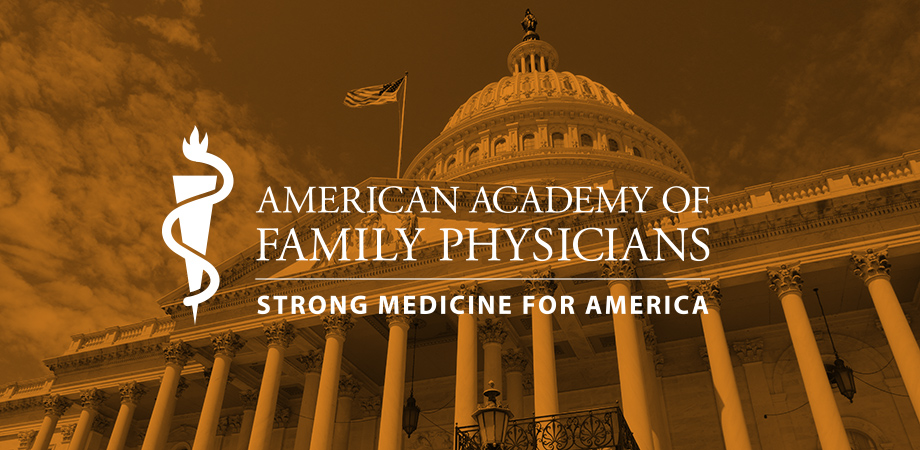Family Medicine Advocacy Rounds, April 2025
Family doctors advocate for robust CDC funding, support policy recommendations for use of AI in health care, and more
By AAFP’s Federal Advocacy Team
Family physicians weigh in on appropriations
Why it matters:
There are several primary care priorities in the fiscal-year 2026 Labor, Health and Human Services, Education and Related Agencies appropriations bill as Congress finalizes federal spending.
The Labor-HHS appropriations bill provides critical funding for agencies and programs family physicians and their patients rely on for access to care, research to improve the efficacy and safety of health care and medical treatments, essential primary care workforce programs, and disease prevention and health promotion efforts.
What we’re working on:
AAFP supports funding for several health care priorities, including the following.
- Robust funding for the Centers for Disease Control and Prevention, which is critical to supporting activities and programs that protect the health of our communities. AAFP joined the CDC Coalition, a nonpartisan coalition of over 150 organizations committed to strengthening public health infrastructure and prevention programs, in a letter to Congress urging funding.
- AAFP joined the Campaign for Tobacco Free Kids in signing letters to appropriations leaders requesting $310 million for the CDC’s Office on Smoking and Health in FY 2026 to invest in tobacco prevention and cessation programs. These will protect kids, save lives and reduce the cost of treating tobacco-caused disease.
AAFP shares recommendations for AI in health care
Why it matters:
The family medicine experience is based on a deeply personal patient-physician interaction that often requires support from technology, including artificial intelligence, to optimize care. AAFP is identifying ways technology solutions, including artificial intelligence (AI), can reduce the administrative burdens that take family physicians away from what they care most about: taking care of patients.
What we’re working on:
AAFP is a member of the Health IT End Users Alliance, which recently finalized policy recommendations for the use of AI in health care.
- The AI consensus statement outlines the key issues related to the use of AI in health care, including opportunities and challenges, followed by a set of recommended policy principles for the federal government and private industry to undertake.
- These principles focus on the health care industry's responsibilities when using AI, particularly regarding safety and transparency; liability; privacy; security; administrative burden and workflow incorporation; end-user education, participation and leadership; accessibility and usability; mitigating bias; and AI use in payment and coverage activities.
- This consensus statement supports AAFP’s ongoing advocacy regarding the importance of responsible and secure AI development, training, implementation and monitoring.
- Mandi Neff, AAFP’s regulatory and policy strategist, moderated a panel titled “Artificial Intelligence From the End-User’s Perspective” on April 8 as part of the American Health Information Management Association's ongoing Washington Update series.
- The panel provided an opportunity for AAFP to connect with health information experts across the country and highlight our perspective on the ever-expanding adoption and use of AI in health care. Properly designed AI tools offer family physicians the opportunity to reduce administrative burden and to spend more time with their patients, though there are still many transparency, liability and education-related questions that need to be addressed to guarantee these tools' safety and prevent adverse patient outcomes.
CMS releases 2026 IPPS proposed rule
On April 11, CMS released the fiscal-year 2026 Hospital Inpatient Prospective Payment Systems proposed rule. As the largest funder of graduate medical education, Medicare plays a significant role in addressing physician maldistribution and disparate access to care across the nation.
While technical changes have been proposed to a few of the calculations involved in direct GME and to the new Transforming Episode Accountability Model, the core tenets of both GME and TEAM are proposed to remain the same.
We appreciate CMS’ ongoing recognition of the importance of primary care continuity through the TEAM Mandatory Model. AAFP supports the role of family physicians in providing continuity of care to their patients in all settings, both directly and by coordinating care with other health care professionals.
What we're reading
Medicaid isn’t a handout — it’s a lifeline. This is the message that family physician leaders in Alaska, Maine, and Missouri shared with senators ahead of the budget reconciliation. Read more in the Anchorage Daily News, the Bangor Daily News, and the Kansas City Star.
Cynthia Chen-Joea, DO, MPH, CPH, an AAFP board member, talked with Chief Healthcare Executive in a recent interview about ways to improve maternal health. Four in five maternal deaths are preventable, federal officials say.
AAFP board member Sarah Sams, MD, spoke to Healio about the importance of bolstering vaccine confidence amid a resurgence of measles.
.
For the latest policy updates impacting family medicine, follow us at @aafp_advocacy.
